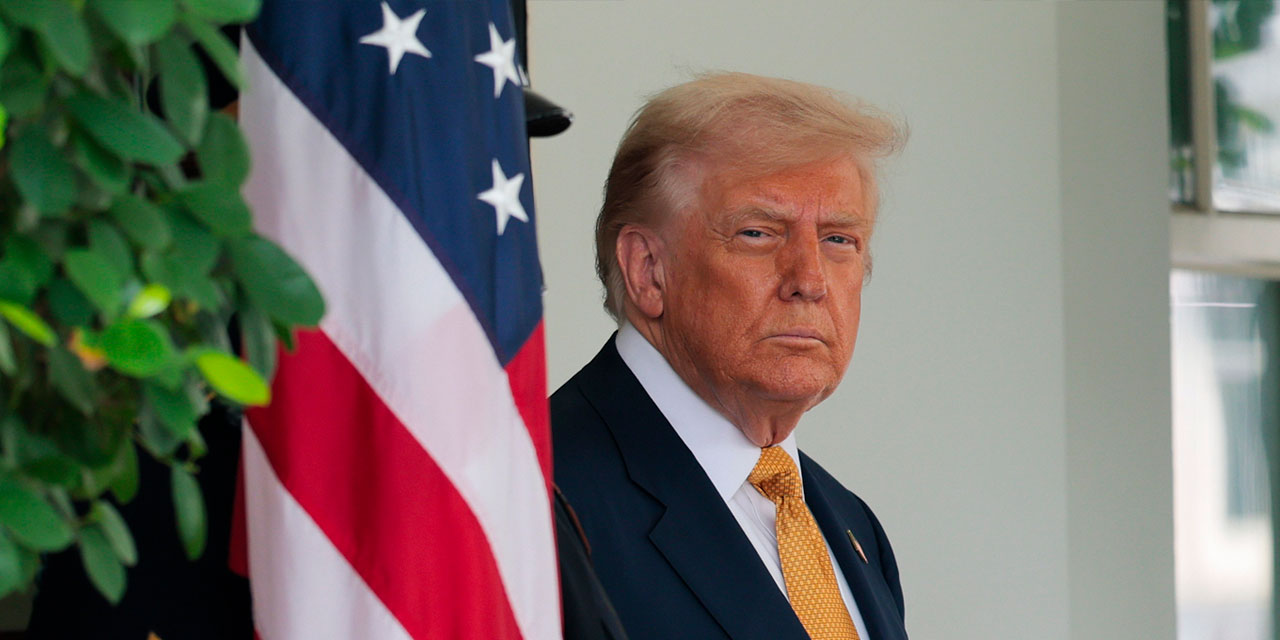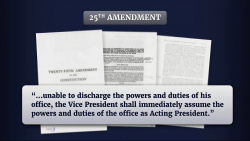
When Iran seeks revenge against the United States, it doesn’t launch missiles—it sends assassins. The regime’s playbook includes a preemptive attempt to murder Donald Trump before the 2024 election and a foiled 2011 attempt to bomb a Washington, D.C. restaurant, and an Islamic Revolutionary Guard Corps (IRGC) operative, indicted in 2022, trying to hire hitmen to assassinate former National Security Advisor John Bolton. U.S. intelligence sources now warn of Tehran-directed “hit teams” operating inside American borders, while former Secretary of State Mike Pompeo lives under constant security protection due to a million-dollar bounty on his head.
President Trump needs to act before the Iranian regime succeeds in striking Americans on U.S. soil. That means tightening immigration enforcement, securing the border, exposing Iranian influence operations, and fortifying likely targets. The threat is real and rising. Now is the time to treat it with the seriousness it demands.
Finally, a reason to check your email.
Sign up for our free newsletter today.
Over the past several decades, Tehran has invested heavily in establishing sleeper cells, proxy networks, and clandestine operatives abroad. Some of those assets are already here. Between 2007 and 2017, weapons caches linked to Hezbollah, Iran’s Lebanese proxy terrorist group, were discovered in Michigan, New Jersey, and other locations. Earlier, U.S. authorities uncovered a Hezbollah cell in Charlotte, North Carolina, involved in fundraising for illicit activities on American soil.
One of the most troubling—and underappreciated—security gaps is Iran’s covert pipeline into the U.S. via Latin America, especially Venezuela. Years of collusion between the anti-American Maduro regime and Tehran have created a backdoor for Iranian agents. A former Venezuelan immigration chief revealed that, in just 17 months, Venezuela illegally issued at least 10,000 passports and other documents to citizens of Iran, Syria, and other Middle Eastern countries.
These make-believe Venezuelans can easily enter the United States by blending in with other Latin American immigrants. With Venezuelan, Brazilian, or Thai passports and names, an IRGC member draws far less scrutiny at the border or a U.S. consulate than an Iranian citizen would. Secretary of State Marco Rubio recently sounded the alarm about this issue, warning the U.S. Senate of the dangerous convergence of Iranian influence and Venezuelan corruption, including plans for the construction of Iranian drone factories in Venezuela.
Iran complements its terrorist plots by pushing propaganda designed to distract and divide Americans. That effort may be linked to the recent resurgence of “No War With Iran” rallies in U.S. cities, as well as the disturbing rise in anti-Americanism, anti-Westernism, and anti-Semitism.
Iran’s role in this escalation is more than just indirect. Beyond its well-known support for terrorist groups like Hezbollah and Hamas, Tehran has actively funded and amplified anti-Semitic narratives in the U.S. In July 2024, Director of National Intelligence Avril Haines warned of Iranian actors posing as activists online, covertly encouraging and even financing protests related to the Israel-Gaza conflict.
Neturei Karta, an extremist anti-Zionist Jewish sect that aligns with Iranian interests and whose leaders frequently visit Tehran, has been linked to multiple anti-Israel demonstrations, especially in New York. Witnesses report Neturei Karta members desecrating Israeli flags at a pro-Islamic Republic protest in Times Square on June 16. One member of the sect gave an interview to Iran’s state-run broadcaster, which U.S. authorities have sanctioned for its ties to Iranian intelligence. The interview occurred at a student-protest encampment at CUNY.
Tehran’s reach extends into cyberspace. The IRGC’s cyber wing, Cotton Sandstorm, has orchestrated coordinated disinformation campaigns aimed at inflaming anti-Semitism and sowing division in the West. According to Microsoft Threat Intelligence, the group ran propaganda efforts through accounts like “For Palestinians” and “For Humanity,” which called for global condemnation of Israel. The group’s strategy includes impersonating Israeli activists to create confusion and distrust within Jewish communities.
The United States needs a strategy to confront the threat posed by Iran and the toehold it has already established in the U.S.
First, Congress and the president must work together to secure the front gate. Every visa category—from the starry-eyed fiancé to the H-2A strawberry picker—deserves a second, security-focused review. Customs and Border Protection, Immigration and Customs Enforcement, and the State Department should reexamine every “temporary” migrant file and rerun Interagency Border Inspection System (IBIS) background checks with the urgency of a bomb-squad sweep. We should also supercharge ICE’s 287(g) agreements, deputizing county sheriffs and local police as force multipliers to ensure no bad actor slips out the jailhouse door unnoticed.
Next, we must keep America’s backdoor sealed. Rubio is right: Joe Biden’s southern border crisis was an open invitation for terrorists. The administration should order an audit of every instance an Iranian national slipped through.
Then, let’s shine a spotlight on Iran’s stateside echo chamber. A free country must allow crank opinions, but it doesn’t have to permit foreign governments to bank roll them. The State Department should unmask U.S. nonprofits that lobby on Tehran’s behalf, exposing the figures who sign the checks and write the talking points.
Finally, we must harden security around the targets we know Iran aims to strike. Synagogues, dissident journalists and authors, and former U.S. officials with bounties on their heads deserve the same layered protection we routinely provide to foreign embassies and their staffs.
None of this should divide Republicans and Democrats. National security isn’t a partisan issue. We must ensure that Iranian-funded assassins can’t stroll through immigration at JFK with a fake Venezuelan, Brazilian, or Thai passport or hide behind a student visa issued in 2021. America’s first and strongest line of defense is our own borders. The time to reinforce them is now.
Photo by Anna Moneymaker/Getty Images
City Journal is a publication of the Manhattan Institute for Policy Research (MI), a leading free-market think tank. Are you interested in supporting the magazine? As a 501(c)(3) nonprofit, donations in support of MI and City Journal are fully tax-deductible as provided by law (EIN #13-2912529).
Source link

















